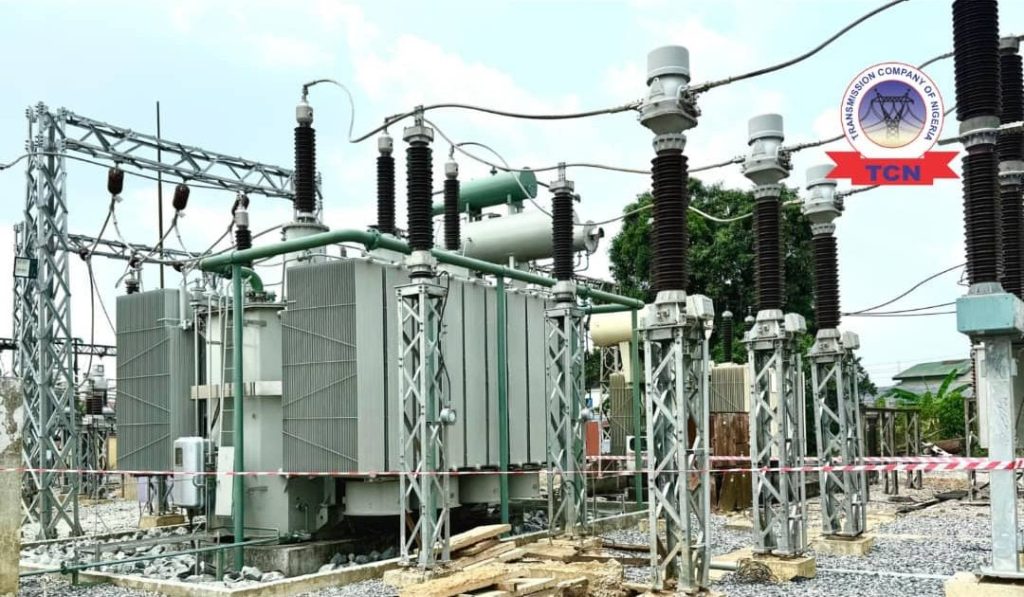The Transmission Company of Nigeria (TCN) has attributed the recent power outage affecting parts of Kaduna State to a combination of natural disaster and human sabotage. On September 18, 2025, transmission tower No. 7, situated along the Kaduna town line I and II in Rigasa community, collapsed following a heavy downpour and windstorm. This unfortunate incident disrupted the transmission of bulk power to several Kaduna Electric distribution load centers, primarily those supplying Kaduna South. However, upon closer inspection, TCN linemen discovered that the tower’s structural integrity had been compromised by vandalism. Crucial tower members had been removed, likely for illegal resale, leaving the structure vulnerable to the severe weather conditions. This act of sabotage exacerbated the impact of the storm, leading to a more extensive power outage than might have otherwise occurred.
The TCN’s immediate response focused on mitigating the effects of the outage and restoring power supply as quickly as possible. While some areas like Kinkinau, Yan Tukwane, Kabala West, Unguwan Muazu, and Kaduna North remained unaffected, the focus was on re-energizing the affected parts of Kaduna South. The TCN advised the Kaduna Electricity Distribution Company to implement a temporary solution by linking its 33kV Mogadishu feeder with the 33kV Abakwa feeder. This rerouting strategy aimed to provide electricity to customers in Mogadishu who were otherwise cut off from the grid due to the tower collapse. Simultaneously, TCN engineers were mobilized to the site to commence the dismantling of the collapsed tower and begin the construction of a replacement. This rapid response underscores the TCN’s commitment to minimizing the duration of the outage and restoring normalcy to the affected communities.
The incident in Kaduna highlights a larger, persistent problem plaguing Nigeria’s power infrastructure: the widespread vandalism of transmission towers. Earlier in June 2025, the TCN had raised concerns about this escalating issue, revealing that a staggering 264 high-voltage transmission towers had been vandalized across the country between January 2024 and June 2025. This alarming statistic paints a picture of a systematic and organized effort to undermine the nation’s power grid. The motivations behind these acts of sabotage are multifaceted, ranging from economic incentives driven by the lucrative scrap metal market to politically motivated actions aimed at destabilizing the government. The consequences are severe, plunging entire regions into darkness and hindering the progress made in improving the national electricity supply, which had reached a capacity of 8,701 megavolt-amperes prior to these disruptions.
The TCN’s efforts to address this challenge involve not only repairing and replacing damaged infrastructure but also engaging with communities and emphasizing the importance of safeguarding these critical assets. The agency has appealed for increased community vigilance and urged citizens to report any suspicious activities around transmission towers to the appropriate authorities. This collaborative approach recognizes that protecting the power grid requires a collective effort, with communities playing a crucial role in identifying and reporting potential threats. The TCN’s public apology to the affected residents in Kaduna reflects its commitment to transparency and its understanding of the inconvenience caused by the outage. The company has assured the public that it is working tirelessly to restore power and minimize the duration of the disruption.
The recurring vandalism of transmission towers poses a significant threat to Nigeria’s energy security and economic development. The financial burden of repairing or replacing these structures is substantial, diverting resources from other critical areas of investment. Furthermore, the disruptions to power supply have far-reaching consequences, impacting businesses, industries, healthcare facilities, and the daily lives of ordinary citizens. The instability created by these acts of sabotage undermines investor confidence and hinders economic growth. Addressing this issue requires a multi-pronged approach involving law enforcement, community engagement, and potentially stricter penalties for those caught vandalizing critical infrastructure.
Ultimately, securing Nigeria’s power infrastructure requires a concerted effort from all stakeholders. The TCN’s commitment to restoring power and its appeal for community vigilance are important steps. However, a more comprehensive strategy is needed to tackle the root causes of this vandalism and ensure the long-term stability and reliability of the nation’s power grid. This includes strengthening security measures around transmission towers, enhancing surveillance and monitoring systems, and promoting public awareness campaigns to educate communities about the importance of protecting these assets. Furthermore, addressing the underlying socio-economic factors that contribute to vandalism, such as poverty and unemployment, is crucial for long-term solutions. By working together, government agencies, communities, and individuals can safeguard Nigeria’s energy future and create a more stable and prosperous nation.


